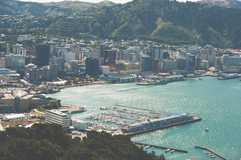Report / Wellington
Time to reboot
New Zealand’s capital is driving to establish itself as a major hub for innovation. It’s small enough to create an intimate working environment – and big enough for the plan to work.
Visiting the offices of software developing company Resn, you’d never guess that you were at the headquarters of a company celebrated worldwide for its creative excellence. Suspiciously reminiscent of student housing, a huddle of black leather couches serves as a meeting room. The office is complete with a beer tap, a collage of a cat made out of pizza slices and bunk beds in case the staff get tired.
Luckily for Resn, it matters little how the company looks in real life, as the digital branding business exists to make products look good online, and its client base shows that it performs where it matters. Around 90 per cent of Resn’s work comes from US-based advertising agencies, with recent clients including Toyota and Puma. Being in New Zealand’s capital city – and on the other side of the world from its markets – is actually an advantage, argues executive producer Jonathan Hawke. “It’s not just the shifted time zone,” he says. “Clients say they enjoy working with us because all the New Zealand clichés are true: we’re laid back, honest and hardworking.”
Resn is a classic Wellington success story. Having grown from four staff when it launched in 2004, to more than 20 in Wellington and four in a new Amsterdam office, which opened this year, a quarter of its employees are international (from countries spanning the UK, US, France, Poland and Holland). The company is careful to control its growth, explains Hawke. “We could get a lot bigger a lot quicker and jump at jobs that are of lower quality – but that’s not what we are going to do. The jobs we’re working on right now are our best jobs ever.”
Local authorities have seized upon knowledge-intensive, creative companies such as Resn as the key to Wellington’s future growth. The New Zealand capital has a population of around half a million, in a country of just 4.4 million. With such a limited domestic market, the key to success is innovative, high-value businesses cracking foreign markets. That means companies must excel at what they do on a global scale in order to overcome the hurdle of geographical distance. Peter Jackson proved it’s possible in film, with his Weta Workshop and associated projects bringing film titans such as James Cameron and Steven Spielberg to town.
While traditionally buffered by its nation capital status, Wellington can no longer rely on being a seat of government to secure its place at the big business table. The public sector is shrinking, with thousands of jobs axed nationwide in the past few years. Prime minister John Key has warned that this could just be the beginning, with new technology leading to more cuts as frontline services are replaced with call centres and online interaction.
That’s a big concern in a city where the public sector employs nearly 20 per cent of the workforce. Add that to the ongoing pressure on national funds from the rebuilding of Christchurch after last February’s devastating earthquake – and the scale of Auckland’s economy in comparison with Wellington’s – and you get something of a David and Goliath story emerging. No wonder local councillors decided the city had to urgently take action or risk being left behind. Last September, Wellington City Council released its draft Economic Development Strategy, a 30-year plan devised to boost the city’s future economic growth.
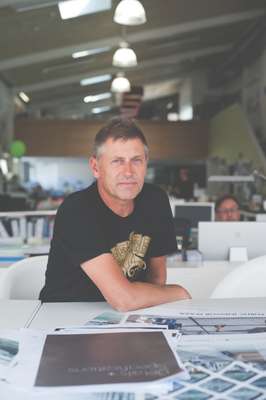
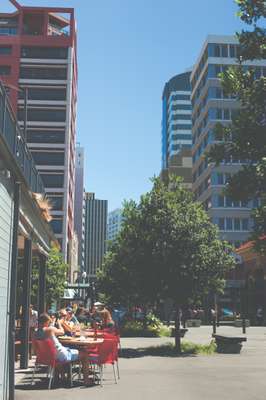
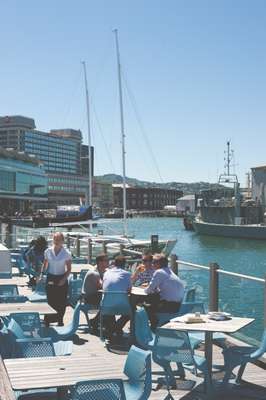
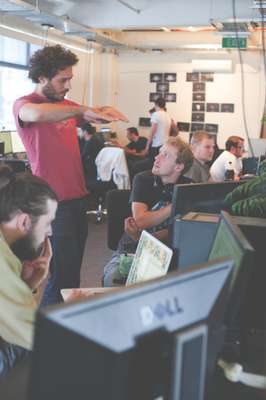
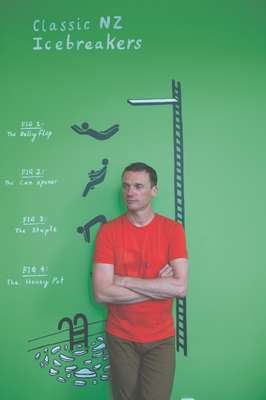
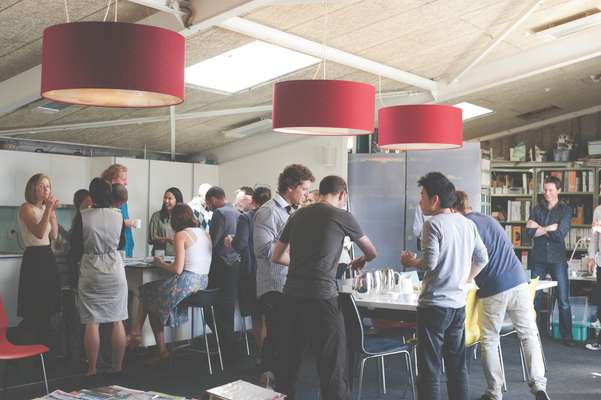
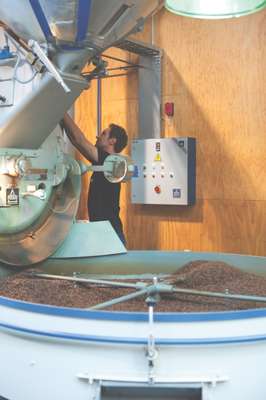

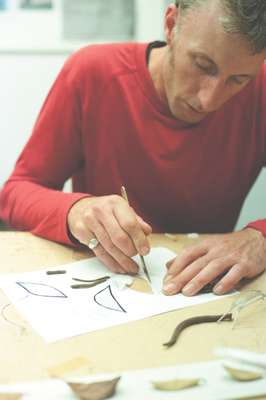
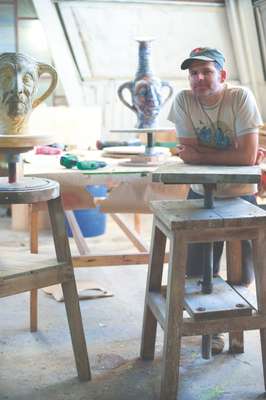
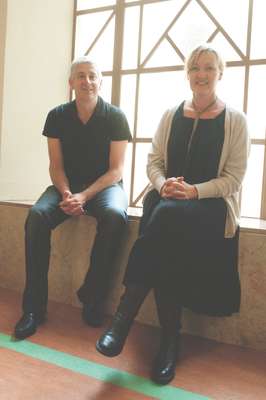
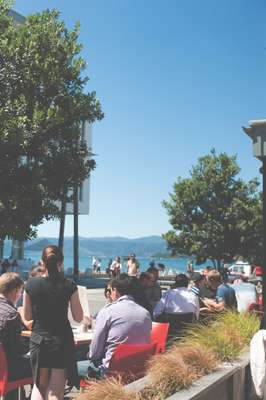
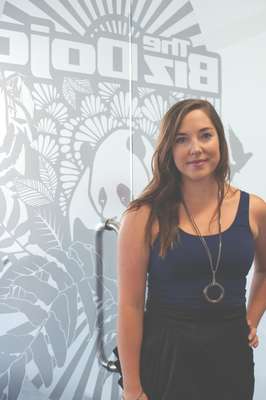
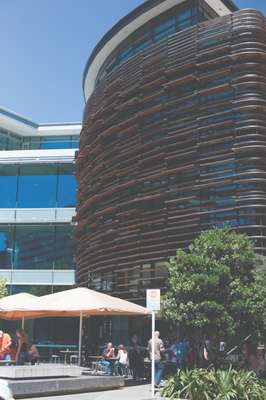
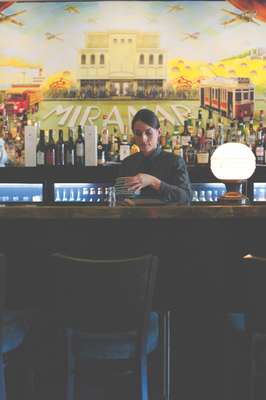
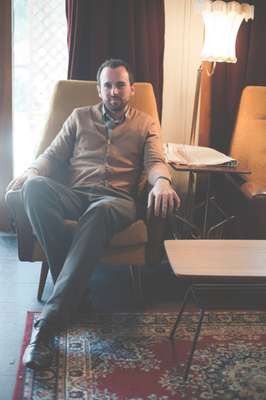
The council’s economic portfolio manager, Jo Coughlan, claims to have been pleasantly surprised by the resulting analysis. “What we stumbled upon was an incredibly diverse small business base,” she says. “People think of the public sector when they think of Wellington, but there’s also vibrant enterprise going on, from hi-tech manufacturing to creative digital, ict and health – it’s across every sector really.”
Coughlan may have her motivations to beat Wellington’s entrepreneurial drum but the council is putting its money where its mouth is. With the glossy new tagline of “Smart Wellington”, the aim is to add 10,000 high value, knowledge- intense jobs to the local economy by 2015. Part of that strategy includes establishing direct flights to Asia, setting up an agency to attract foreign investment and putting on an “open for business” face through marketing initiatives.
Wellington isn’t New Zealand’s easiest city to market, however. Traditionally the bureaucratic heartland of the country, grey suits are often mirrored by grey skies, and the city is notorious for its biting southerly wind. With average temperatures hovering around 15c, summer always seems reluctant to arrive, and while locals relish the intermittent days of blue sky that can occur spectacularly at any time of year, the default weather setting borders on miserable.
It’s a charming testament to the city’s positive new outlook that local business leaders seem determined to spin even meteorological shortcomings to their advantage, however. “If the sun was out all the time you’d get a certain crowd living here. Bad weather weeds out the pretentious,” says Resn’s creative director Steve Le Marquand. “We don’t mind staying inside and getting a lot of work done. Try doing that in Sydney.”
Another characteristic business leaders like to spin into a positive is Wellington’s small – or perhaps “compact” – size. Firms such as Resn or accounting software developer Xero recruit heavily from overseas and they lure staff with the quality of life that comes from your morning commute being a stroll along the waterfront from home to office.
“If you work for Google or some slick Silicon Valley firm you live in a gated community and drive to an industrial estate for work. And then everyone goes to the same place for lunch,” says Rod Drury of Xero. “Here you go to local cafés. Go for a run around the waterfront. You can go windsurfing, mountain biking, there are heaps of bands on. You’re living in the centre of the city with all the diversity that it brings. We’re now able to offer Google and Facebook-calibre jobs with the lifestyle of New Zealand.”
Mary-Anne Webber, general manager of local economic development agency Grow Wellington, says operating in a compact place makes doing business easier too. “You can be walking down the street and run into an investment banker, or see a local ip lawyer – the whole team that you need really. Making connections here is done on a very human scale, which helps you on the way to becoming that international success story.”
One local business that trades on the ease of making connections in Wellington is BizDojo, a shared workspace that opened in June last year. Renting desk space to start-ups and entrepreneurs in the creative hi-tech industries, the company emphasises the importance of having face time with like-minded people in the early stages of setting up a business. “I like to think of it as curated serendipity,” says manager Katherine Field, who sees her role as a kind of matchmaker for young, blushing start-ups. Eager new businesses hoping to get lucky at BizDojo include a phone-based software designer, an agency sourcing design graduates for employers and a clean-tech company that creates eco-fabrics from industrial waste. And of course, working at close quarters also means there’s always someone on hand for an after-work beer.
Wellingtonians would probably not have felt like heading down to the harbour for a beer 20 years ago but the area has been dramatically regenerated in recent years and the city’s iconic convergence of coast, hills and skyscrapers is now a constant bustle. Old storage sheds and disconnected walkways have been replaced by a diverse collection of bars, restaurants, office buildings, museums, music venues and parks.
Local firm Studio of Pacific Architecture has been responsible for much of this waterfront transformation, including two office buildings and a public promenade. The nz$30m (€19m) Meridian Building, completed in 2007, draws on traditional seafront sheds for inspiration and has won national awards for its sustainable design – the building’s energy consumption is two-thirds lower than a typical office building. It borders the Kumutoto Plaza, a council initiative that Studio of Pacific Architecture completed the same year, and has a series of staggered terraces descending from city to the sea that provides scenic, sheltered perches.
In designing for the area, studio director Nick Barratt-Boyes is acutely aware of its significance to the city as a whole. “When things happen on the Wellington waterfront, they are vigorously debated and public interest is really high,” he says. “It’s a small city with an intense coastline – the topography of the hills really packs you in – so it becomes the focal point.”
As shadows lengthen in the evening, the couches at the Cuckoo Cocktail Emporium fill up. In contrast to the business district in which it nestles, the small bar has a homely vibe and a canny marketing ploy: its furniture and décor is all for sale. The emporium is the brainchild of owner Jonny McKenzie. “There are so many times I’ve gone into restaurants or cafés and thought, ‘That’s an awesome lampshade, I wish I could buy it’. It created the marketing about Cuckoo and was a way to get Cuckoo into people’s homes.”
Last year, McKenzie became general manager and co-owner of The Roxy, an arthouse cinema in the suburb of Miramar, just down the road from Peter Jackson’s film studios. His business partners include luminaries of the film world, such as special effects maestro Richard Taylor. They spent nz$7.1m on the cinema’s Art Deco-style refurbishment, a testament to the fact that Wellingtonians are prepared to invest in their city right now. McKenzie is on the lookout for more opportunities to expand his hospitality empire in the coming months.
“I like the fact that I can drop into my bars and say hello every day. I’d find it weird to ask for reports on how the business is going every three hours or check my cameras on the internet while in the departure lounge,” he says. “The guys I admire overseas are those who are firmly rooted in their cities. I just happened to pick Wellington, which is really small. There’s so much potential – if we could just get the population to grow.”
Q&A
Jake Yocum
Co-director
Izzat Design prop builders
How did the idea for Izzat come about?
I met the other three directors when we were working on King Kong around seven years ago. I’d returned from England where I worked on big budget films. It seemed a good time to get a new business going.
Why operate as a company rather than an individual contractor?
You’re a one-man band over there on a film set. You spend a lot of time just waiting for the phone to ring on a job. We thought we’d consolidate our skills and do this.
What has the film industry done for Wellington?
It’s put us on the map. We’re internationally respected because of Peter Jackson but the drawback is that people fly in and just expect to get work. Our company is strong because we’re not paying ourselves inflated wages and we work on diverse projects.
Clean tech
Economic development agencies are channelling resources into the clean-tech industry and view it as a key area for growth. In 2010 the country’s first Clean Technology Centre opened just north of Wellington and now houses 11 companies. The sector grew 8 per cent in 2011, generating NZ$59m (€37m).
One local sustainable business finding international success is The Formary, creating textiles from industrial waste. Its WoJo product, an upholstery fabric made from discarded coffee sacks blended with wool, caught the attention of Starbucks, which has used it on couches and chairs in its stores around the world.
Manufacturing
Manufacturing has dwindled over the past decade but it remains an important contributor to the economy, generating NZ$974m and employing 15,000 people last year. The industry is characterised bycompanies making specialised products for niche markets.
Outdoor clothing company Icebreaker, launched in 1994, makes hi-tech Merino wool products with a focus on sustainable sourcing and ethical manufacturing. Icebreaker is now distributed in 42 countries with offices in Portland, speciality stores in New York and its sights set on the Japanese market. Most importantly, though, its HQ remains in the heart of Wellington.
Food and beverage
If there is one product that symbolises Wellingtonian culture, it’s coffee. Residents love bringing up the (disputable) statistic that Wellington has more cafés per capita than New York.
Grow Wellington is tapping into this reputation with a five-year strategy to establish Wellington’s identity as a source for premium products. As well as coffee, it is targeting export markets for wine, chocolate, craft beer, honey and olive oil.
The food and beverage industry is one of the fastest expanding sectors in New Zealand’s capital, with growth of 4.2 per cent last year and an economic output of NZ$597m.
Screen and digital
The film industry got a major boost in 2001 when Peter Jackson brought the lucrative Lord of the Rings circus to town. The success of the trilogy allowed Jackson to create world-class facilities that have lured major films such as Avatar and The Adventures of Tintin to the region, particularly for post-production wizardry.
Surprisingly, the economic value of the sector has remained fairly static for the past decade, at about 1 per cent of the region’s economic output. Last year the industry generated NZ$218m and employed around 4,000 people. This year is a bumper year – cameras are currently rolling on Jackson’s latest, The Hobbit.
Q&A
Rod Drury
CEO
Xero online software company
Why Wellington?
There are a handful of cities in the world where software flourishes – Seattle, Portland, San Francisco, Wellington, Melbourne. That’s got a lot to do with them being really fun, centralised towns where people stay and mingle, which allows you to build deep and diverse relationships.
How has the industry changed over the years?
Cloud technology allows us to operate globally but still in our unique way. With Xero, we’re five years into it. We’ve got 60,000 customers and 240,000 users around the world.
Is there a good skills base in Wellington?
Being a government town, there has always been a lot of money spent on ICT because government departments have to spend their budgets.
Do your staff have to work around the clock?
No. They sleep. We have people all over the world, and like to think of ourselves as a mini multi-national. Most of our development staff are in Wellington, but we also have teams in Australia, the US and the UK.

